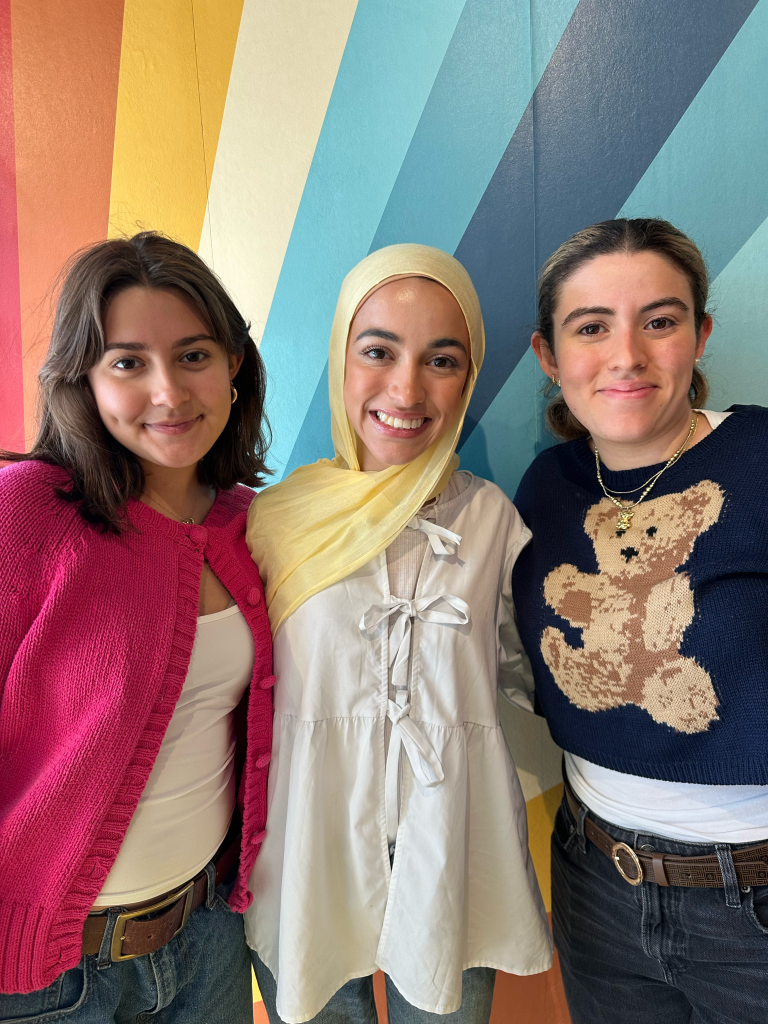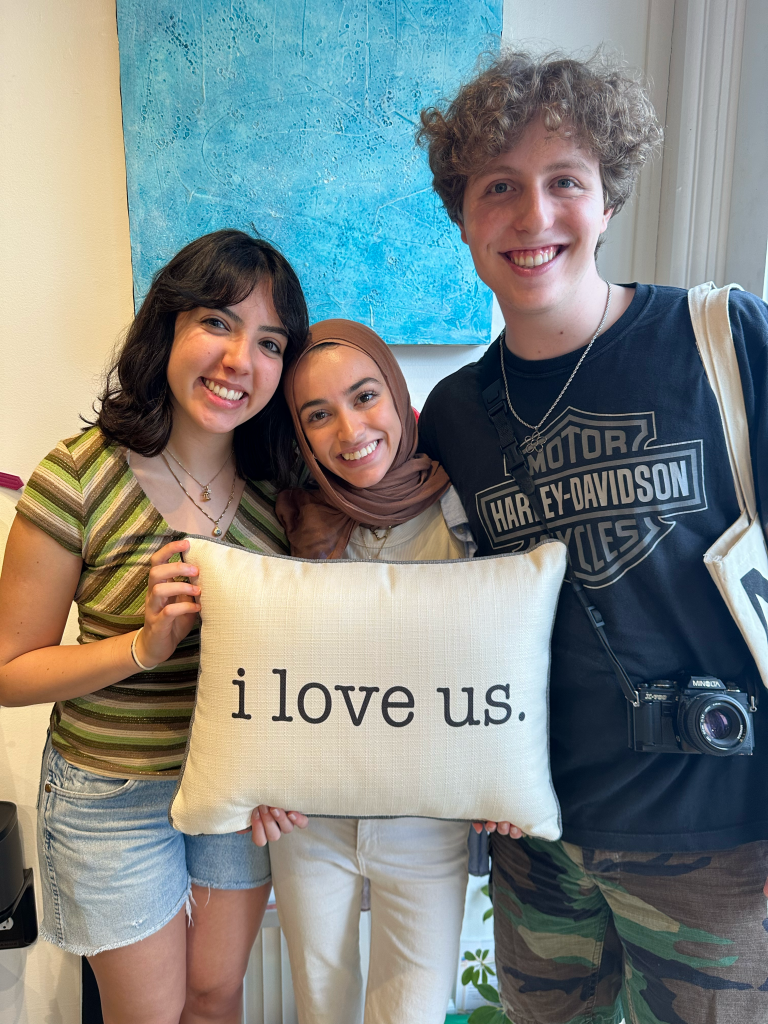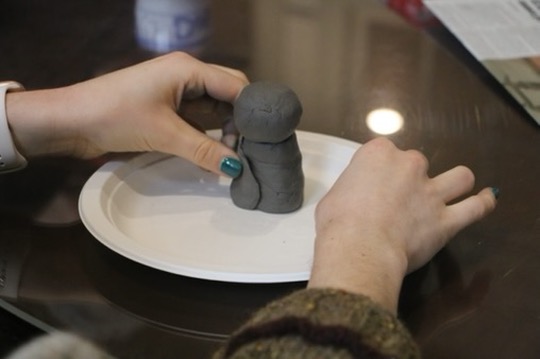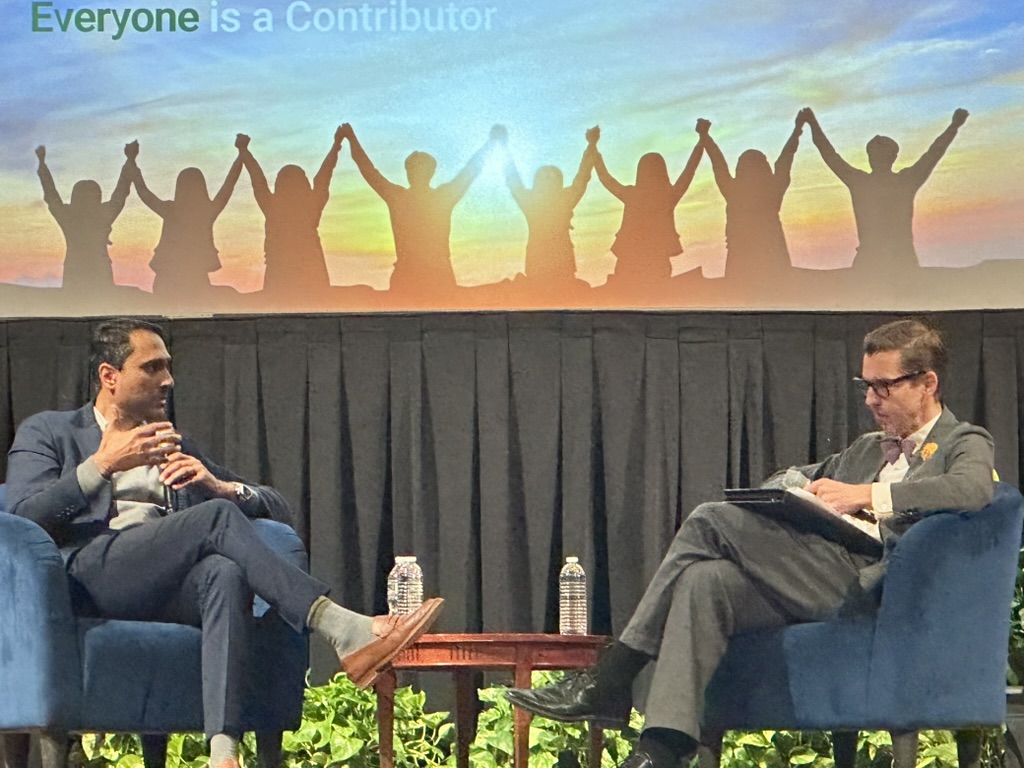By Asil Bascal ’25
When I first started school at Syracuse University, I remember wandering around campus alone, just after my dad dropped me off. I stared down at my phone following Google Maps as I nervously made my way to Hendricks Chapel, searching for the pre-welcome event for Muslim students. That week I met some of my closest friends, and after only a short time, I felt like maybe college wouldn’t be so intimidating after all.

Michela Wallach ’27 and Lucy Gonzalez ’27.

Fe Kligerman ’26 and Micah Greenberg ’26.
Over time, I became more involved with the Muslim Students Association (MSA), eventually joining the executive board (e-board) as social media strategist. What began as a side commitment quickly became a defining part of my college experience, and I remained on e-board for the next three years. One afternoon, after spending time in the Muslim prayer room, I wandered over to People’s Place Café, which is also located on the lower level of Hendricks Chapel, and loved it so much that I decided to apply for a job. That little café became a cornerstone of my routine and a space where I queued up playlists and shared laughs with friends.
Through my work with MSA and my constant presence in Hendricks, I met Dara Harper, whose warm energy and encouragement introduced me to the Communications Associate role. That opportunity helped me grow professionally and uncover talents I may never have explored as a pre-med biotechnology student.
Sign up for the Hendricks Chapel newsletter!
Continue Reading


